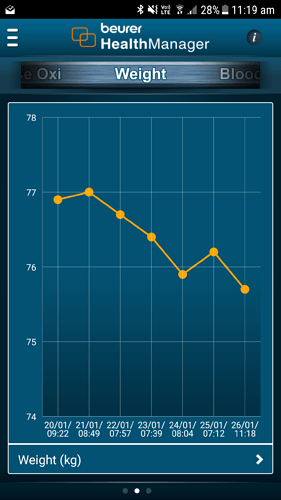Hi Everyone,
I’ve just joined and thought I’d introduce myself as well as see if I can get any feedback on my plan.
First up, about me:
Turning 40 in a couple weeks,
76kg
19% body fat
Fasting Blood Glucose normal
Cholesterol on statins ~ low 5s, off statins, high 6s.
Kidney function slightly low for age
Slightly elevated inflammatory markers - possibly due to dust/pollen allergies.
Early signs of fatty liver disease
Although my doctor hasn’t said it, I am concerned that as someone of Chinese descent, I may be “skinny-fat”. That is, acceptable fat ratio, but all deposited viscerally. Most people looking at me would struggle to see any flabby bits on me at all.
Anyway, I’ve been aware of ketogenic diets for quite a while, but took little interest in it, as I didn’t think I needed to diet. However, my bloodwork begs to differ, and I thought I’d give it a go. My plan is to:
-
Keep carbs under 20g/day for 2 weeks, moderate exercise at least 3 x a week (I walk to work, hilly 3.5km each way). Do not intentionally create a calorie deficit, but if I lose weight in this stage, all the better. I already drink bulletproof coffee for focus in the morning, and indeed it was chatting to people about that, that lead me to consider a ketogenic diet, since some people say the lack of carbs and MCT heavy drink gives them a short ketosis window every day, even though they’re not aiming to be ketogenic.
-
Hopefully by week 3, I will be somewhat fat adapted. I will create a calorie deficit by exercising harder, and reducing calories eaten. Planning on running to work, and doing bike rides. Lose approximately 8-10kg in this phase. I am hoping I can do this in less than 6 months.
-
Ease up on the ketosis, and go to only low carb - < 100g/day, and start training for a half marathon again. (I used to run those about 8 years ago. Best time was just under 2h, so by no means a professional, but definitely faster than just walking 21kms).
Hoping that losing this fat will also mean inflammatory markers and cholesterol will drop, letting me get off statins. While I have no noticeable side effects, I prefer to be on as few drugs as possible.
What do people think? Is this a reasonable goal to set, and am I on the right path?
Thanks.



